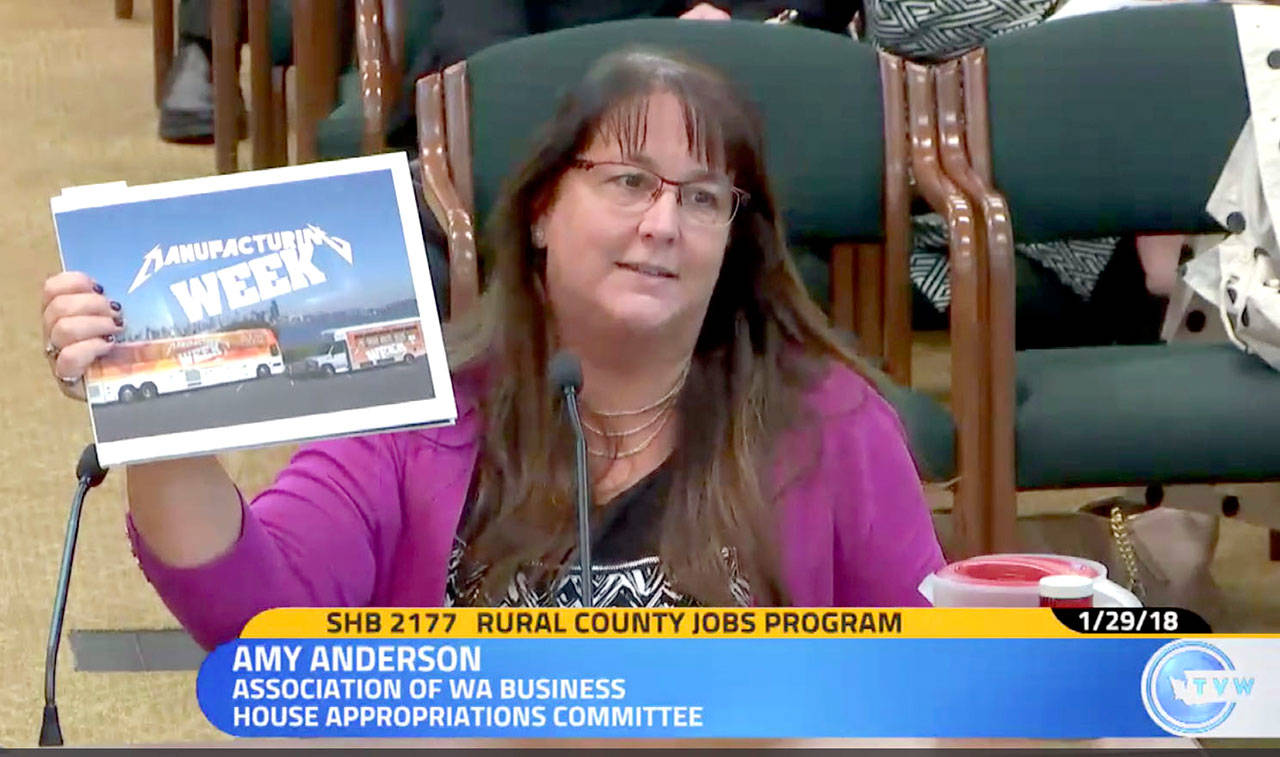By Taylor McAvoy
WNPA Olympia News Bureau
OLYMPIA — A proposed program could provide grants for community college students to learn trades in high demand in rural areas.
All counties in the state would qualify except for King, Pierce, Snohomish, Kitsap, Watcom, Thurston, Clark, Benton, and Spokane counties.
Lisa Perry, representing Sierra Pacific Industries, a timber company in Skagit and Lewis counties, said at the bill’s hearing that at least one line in the company is not operating because of the lack of skilled workers.
She said schools don’t encourage students to study fields like electric engineering, mechanics, or other trade fields. This bill, she said, would allow local industries to work with community colleges in their area to identify industry needs.
“We need this visibility,” Perry said. “We are short on workers.”
“We talk a lot about rural economy and creating jobs in rural Washington,” Rep. Mike Chapman, D-Port Angeles, prime sponsor of HB 2177 said at a public hearing Jan. 29.
“It’s really become clear that there are good paying, family wage jobs that are available right now in rural Washington, but there are not trained workers to take those jobs.”
Chapman represents District 24, which covers Clallam and Jefferson counties and part of Grays Harbor county.
The proposed grant would cover tuition and fees for up to 45 credits or one year of full-time study starting no later than the autumn quarter of the 2019-20 academic year.
To be eligible, a student must be a resident of a rural county, enrolled in a community college program in a high demand field, have a family income that is less than 70 percent of the state median, and submit the Free Application for Federal Student Aid or the Washington Application for State Financial Aid.
The State board of education has not yet identified specific fields that qualify as high demand areas, but must do so by January of 2019.
“We have a gap and this bill would provide the resources we need to fill that gap,” Erin Frasier, policy director for the State Board for Community and Technical Colleges said.
Chapman pointed to the nursing, carpentry, and welding industries as examples of high demand fields.
Amy Anderson, government affairs director of the Association of Washington Businesses, said that there will be almost three-quarters of a million jobs opening in the state within the next five years and a majority of those jobs will require a post-secondary credential of some kind.
She said while graduation rates rise, only about 31 percent of high school graduates obtain a post secondary credential or degree.
The Association of Washington Businesses toured 70 manufacturers in October, Anderson said. They found that every business expressed a need for a skilled workforce. Many were unable to expand or forced to shut down manufacturing lines due to the lack of a skilled workforce.
“The need is even more acute in our rural areas in the state,” Anderson said. “The benefit would far outweigh the expenditures to the state.”
According to the bill’s fiscal note, the program would cost $259,000 per year to implement the program. The state would also match any private donations made up to $50 million per year.
The bill was heard in the House Appropriations Committee on Jan. 29. Lawmakers voted to pass the bill out of the Appropriations Committee to the Rules Committee on Tuesday, narrowly missing its deadline. The Rules Committee will decide if the bill gets a vote on the House floor.
________
This story is part of a series of news reports from the Washington State Legislature provided through a reporting internship sponsored by the Washington Newspaper Publishers Association Foundation.

